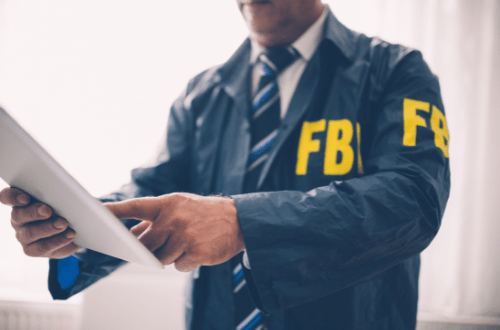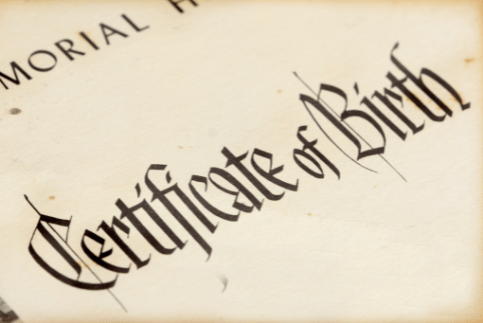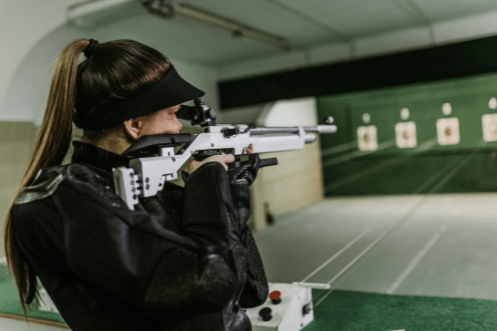What is a Special Agent?
The titles of special agent, criminal investigator, and federal agent are synonymous within the federal law enforcement system. However, the official title is criminal investigator. Therefore, whether a special agent is employed by the Secret Service, the FBI, or the ATF, they will have the title of criminal investigator. Therefore, this job series code will appear as ‘1811’.

While many individuals equate special agents with the FBI, there are many agencies that offer career opportunities as a criminal investigator. Approximately, there are one hundred federal agencies that have law enforcement functions. For example, the Office of the Inspector General, whose mission is to detect fraud, waste, and abuse in agency programs, contains criminal investigator positions at every cabinet level.
Requirements to Be a Special Agent

A unique element of becoming a special agent is that no previous law enforcement experience is required for entry-level hiring. However, all agencies do require a four-year degree. Additionally, most special agents must be at least 21 years of age. The maximum age an agent can be upon hiring is 37 years old.
With a four-year degree and no previous experience, an individual will begin at what is referred to as a GS-5 pay level. Of particular note, there is a program called the Outstanding Scholar Program for recent graduates. The Outstanding Scholar Program recognizes the academic successes of applicants. For example, an applicant would qualify an agent for a GS-7 pay level if they completed their degree with a 3.0 GPA or a 3.5 GPA in their major. Veterans also receive benefit points when applying to federal positions. The number of points they receive varies depending on their type of military service.
From Application to Badge: Navigating the Hiring Process of Special Agents

When an advertisement, or job posting, is created for a special agent, it will be for a specific location(s) and pay level(s). However, despite being advertised for a particular location, special agents must often sign a mobility agreement. This means they agree to be transferred or sent to any location the agency needs.

Job postings for special agents may remain open for a short time. However, if the agency is conducting a large-scale hiring process, the job will stay open longer. Individuals interested in becoming special agents can monitor job postings on usajobs.gov, golawenforcement.com, and an agency’s website.
When a prospective special agent begins their application, they will likely be asked to list their KSAs: their knowledge, skills, and abilities. Other questions are to be expected, which will gauge whether an applicant is qualified for the position. After these primary steps, applicants will be required to complete the following:

- Proof of U.S. citizenship
- A possible written exam tailored to the special agent position
- An oral interview
- A criminal history check and background investigation
- A polygraph
- A psychological exam
Understanding that the hiring process will take a significant amount of time is crucial. Therefore, throughout the process, an applicant must pay close attention to deadlines and submit their information and documents before the posting’s closing period.
Preparing for Success: Essential Tips for Prospective Special Agent Applicants
Each federal agency possesses different specialties. Therefore, it is beneficial for an applicant to know the mission of the agency they are applying to, the crimes they investigate, where the agency’s offices are located, and their current goals and objectives. This information, paired with the ability to give an oral summary of their resume and background, will allow a prospective agent to display their ability to communicate effectively. Preparation is vital to the hiring process, so be prepared to communicate why you are the best candidate for the position.

For future job postings, it can be highly beneficial for applicants to have collected the necessary documents ahead of time: transcripts, birth certificates, etc. Also, within the federal system, one can create a general profile and tailor it to the specific position you are applying for. These preparations aid an applicant in meeting application deadlines.

Beyond the application process, there are specific skills that prospective criminal investigators can grow. Often, special agent positions will investigate crimes that revolve around the analysis of financial documents. Therefore, learning advanced computer techniques and accounting skills greatly benefits applicants. Another essential skill for agencies is an applicant’s writing skills. Having above-average writing skills will be crucial for special agents when they write reports, search warrants, etc.
Security Clearances
Minimally, special agents will be required to possess a secret clearance; however, for some positions, agents will need a top-secret clearance. The clearance process for Secret Level access uses an investigation called the National Agency Check with Law and Credit that goes back five years. In comparison, the clearance process for Top Secret uses a Single Scope Background Investigation that goes back ten years. In addition, top Secret clearances require a full field investigation, which will entail a background investigator visiting and speaking with an applicant’s friends, family, and associates.

Throughout the vetting process, background investigators will be searching for disqualifiers. The two categories of disqualifiers are automatic and discretionary. Discretionary qualifiers are evaluated on a case-by-case basis and typically involve drug and alcohol abuse. Typically, agencies will list some discretionary disqualifiers on their website. For example, the FBI lists its policies on drug use on its website.
Automatic disqualifies are just as they sound and may include:
• A felony conviction
• A pending prosecution for a felony
• A misdemeanor domestic violence conviction
For many, the application process to become a special agent can seem daunting, especially considering undergoing a background investigation and polygraph. Often, people will be concerned about being disqualified over something in their past and may even consider covering it up. However, it is essential to understand that an applicant will be instantly disqualified if they are found to be deceiving investigators, omitting information, or being untruthful. However, fortunately for applicants, if they are honest and forthright, they may be allowed to continue the hiring process.
Training for Special Agents

Once hired, all special agents will go through a criminal investigator academy. Most federal agencies will train special agents at the Federal Law Enforcement Training Center in Glynco County, Georgia. Some larger agencies, like the FBI, will have their own training facilities to train their special agents. Whether a special agent gets trained at the FLETC or by their respective agency, they will be trained in various academic and investigative subjects.
Working as a Special Agent
Being a special agent can lead to an exciting, rewarding, and meaningful career. A special agent will bring their skills, compassion, and integrity to address threats, uphold the law, and defend the innocent. The process of becoming a special agent can seem difficult, but with countless opportunities in the federal system and knowledge of the hiring process itself, you can be assured that you are equipped to begin applying to 1811 jobs.

 Joseph Libowsky,
Joseph Libowsky,